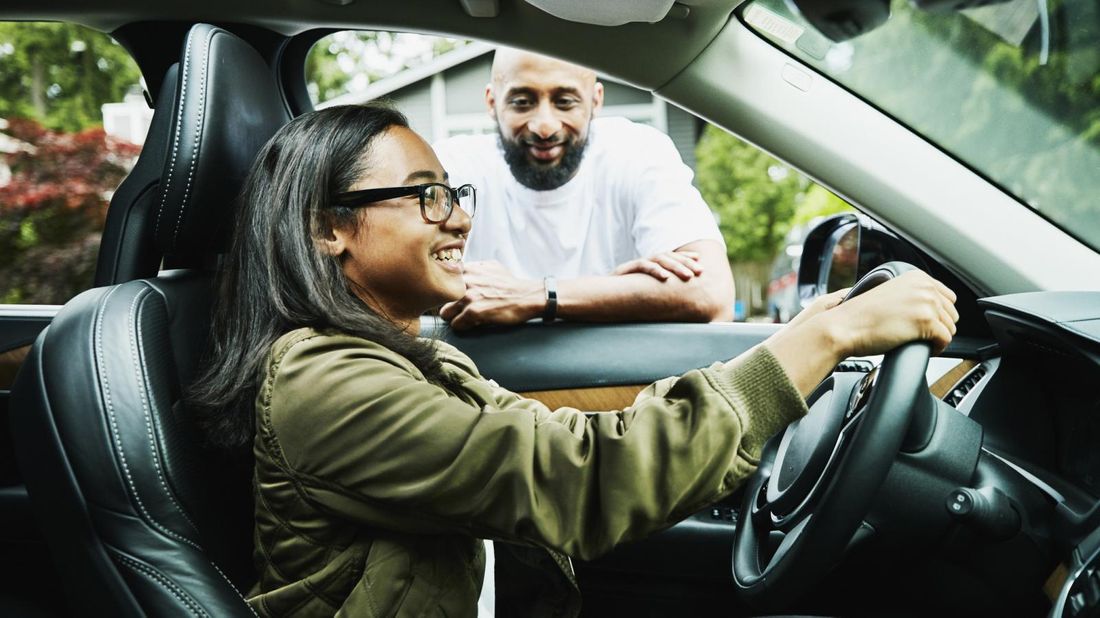5 Times You’ll Be Able to Teach Your Kids About Money Management

Key takeaways
There are plenty of teachable moments to help build your kids’ financial literacy.
While it’s ideal to start having these conversations as early as kindergarten, it’s never too late to start.
Having ongoing, age-appropriate money conversations is the key to success.
From finding Tooth Fairy money under their pillow to bringing home their first paycheck, there are lots of opportunities to teach your children about earning, saving and spending.
According to Robin Taub, author of The Wisest Investment: Teaching Your Kids to Be Responsible, Independent and Money-Smart for Life, you can start having conversations like these as early as kindergarten.
“Ideally, if parents start early, kids can make mistakes when the stakes are low and learn from them,” she says. “But it’s truly never too late to start.”
5 Times to Teach Your Kids About Money
In that spirit, we asked a few experts to identify some childhood milestones that could provide built-in opportunities for your kids to start learning about money.
1. Finding lessons in everyday moments
Money is woven into your daily life. Whether you’re going to the grocery store, paying bills or ordering household items online, there are many opportunities to start organic financial conversations with your kids. Consider them to be teachable moments.
“Take the time to explain what you’re doing, and build a money lesson into your daily lives,” Taub says. “One family I met even used their home renovation as a lesson in budgeting.”

Have a question or a topic to discuss with your advisor?
2. Buying gifts for others
It can be tempting to simply let your kids pick out grandma’s birthday gift online and then pay for it with your credit card—but they’d be missing out on the joy of seeing how their hard-earned money can bring happiness to others.
“It’s a great lesson in the value of working hard, saving and planning,” says child psychologist Forrest Talley.
You can help your kids make a list of recipients and set a budget for each gift based on how much they realistically can save. While it’s appropriate to subsidize the gift fund for younger children, Talley advises that older kids should contribute a portion of their own savings, whether from their allowances or through extra chores they perform.
“If they end up being unable to give gifts because they failed to save, this also becomes a lesson learned,” he says. And there’s no need to belabor the point. “If siblings have given out gifts, this observation alone will usually make an impression.”
3. Landing their first job
Whether it’s yard work or virtual tutoring, encouraging your kids to find a part-time job “infuses a teen with a sense of pride that they have been able to apply their skills in a way that others find valuable, as reflected in a paycheck,” Talley says.
From there, you can teach them how to save, spend and give. For example, your child may want to put some money aside for college, spend some of it on a new outfit and donate a portion to a favorite charity.
Without a spending plan, they might waste that sudden wave of income on impulsive purchases. If you sense your child is planning to blow through their cash, Talley says it’s wise to intervene and point out that buying expensive shoes now might mean not having enough to buy a car later.
If your advice falls on deaf ears, acting on impulse might teach them an important lesson. “Soon enough, the newly purchased item will lose its charm, but the pain of not having money to buy a car will leave an imprint,” Talley says.
4. Getting a driver’s license
Speaking of buying a car, most teenagers look forward to the freedom that comes with a set of wheels. Before they hit the open road, discuss how they’ll cover related expenses—including insurance, gas, maintenance and car payments.
You might decide to have your teen pay for their own gas or cover a portion of the insurance premium. If your insurance company offers a discount for good grades, you can use that to show how good habits in other parts of their life can influence their finances. While reviewing driver safety, be sure to discuss their responsibility for paying for any tickets and repairs—and how insurance premiums tend to go up after an infraction.
5. Using their first credit card
Adding an older child as an authorized user on one of your credit cards can help them practice using credit responsibly. Just be sure to explain the advantages—and potential pitfalls—of using credit.
“Make sure that they are very clear on staying away from that buy-now-pay-later button; that’s number one,” says Tanya Van Court, founder of the financial education app Goalsetter. “Number two: Credit cards are for credit scores. The importance of a credit card is for you to build credit history.”
Kids and Money: What You Need to Know
Talley echoes a similar refrain and also recommends that teens practice with a debit card, which can prevent them from accruing debt. Parents can put a set amount in an older teen’s account and then designate its use—clothes, entertainment, school supplies, athletics, gas, etc.—for the month. You can also build a budget together. From there, it’s up to them to spend wisely to make the funds last.
Build a strong financial foundation
Whether you’ve got kids who are in elementary school or getting ready for college, meet them where they are—and keep the money conversation going as they enter different phases of childhood. You could also bring them in to meet with your Northwestern Mutual financial advisor, who can provide more detailed information for any questions they may have. The goal is to lay the groundwork for a strong financial foundation.
“If you can get kids into these good, healthy financial habits, then they don’t struggle with them so much as adults because they’re not new to them,” Van Court says.







